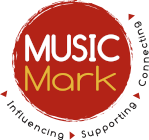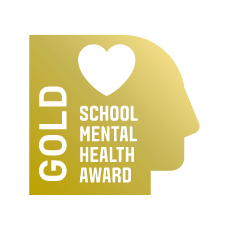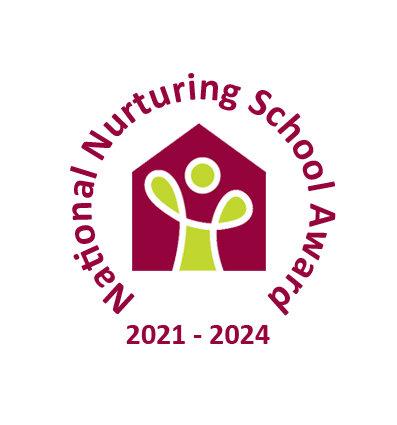Curriculum Statement
Curriculum Statement
The Learners at Alternative Provision are amongst the most vulnerable young people in St Helens. Many have missed large amounts of education for a variety of reasons; therefore they require a flexible and supportive curriculum that can help them to “fill the gaps”.
Our intent is to inspire and engage all in a lifelong learning journey. It is to create an environment which invites all to reflect on their true potential within a nurturing educational community.
Our curriculum will support all students to be self-aware, strive to achieve their true potential, be inclusive in their thoughts and actions and above all, able to offer a positive contribution to their community.
Each subject area includes enriching experiences to support curriculum as well as lifelong learning. We have adopted a knowledge based curriculum model with key interpersonal skills and cognitive skills explicitly taught across all subjects. Alongside these skills, cultural experiences and career opportunities link in to our overall curriculum design which intends to give a holistic and life changing experience leading to a clear community identity.
Each facility within the Alternative Provision service takes a full and active role in living out our ethos in and around the community. They experience culture beyond the classroom walls through visits out and external speakers in to each facility. Each lesson gives the opportunity for our students to build character, resilience and life skills that will stay with each of them through life.
It is the desire of both staff and students that they are equipped with the skills of life to be successful in their chosen career paths. With the acknowledgement of our uniqueness, these paths will consist of university, apprenticeships or on the job learning. Whatever is chosen by our young people, they will seek to make a positive contribution to the community they belong to.
Ultimately through all we do together, our curriculum intent is about inspiring people and breaking boundaries.
English
“It is not enough to simply teach children to read; we have to give them something worth reading. Something that will stretch their imaginations—something that will help them make sense of their own lives and encourage them to reach out toward people whose lives are quite different from their own.” —Katherine Patterson
The English department in each of our facilities aim to promote a passion for English within all students at Alternative Provision. The love of the subject is nurtured and will build on the vital foundations that students have already laid at Key Stages 1 and 2. The English department want all students to feel empowered by what they study, developing creativity for both the written and spoken word. Our students are immersed in a broad curriculum that allows them to research and theorise about the relationship between a writer’s context and their writing style. Students will develop the skills of empathy and enquiry for current literature as well as a thirst to know more about a world that has gone before them.
Maths
Mathematics can help us better understand and describe the world around us. Recognising the importance of mathematics in life and in society contributes to living safe, healthy and fulfilling lives. Understanding there is a purpose to Maths beyond the classroom is our curriculum intent. The importance of mathematics is evident in our personal lives from calculating the number of tins of paint needed when decorating, managing expenses organising and planning a journey, to estimating bills. Some career options require subject-specific knowledge but a wider variety depend mainly on 'higher-order skills' and problem solving, being able to think logically or systemically, handle data or analyse problems. Our curriculum is designed to give a good mathematical education and to help develop these higher-order skills. We want pupils to respect others’ values and opinions, work as a team and have a sense of unity through helping or supporting others. We want students to aspire to be the best that they can be and reach their individual potential, especially having confidence and resilience to face any challenges.
In the mathematics departments within Alternative Provision, we aim for all of our students to acquire a deep, long-term, secure and adaptable understanding of mathematics. In order to do this, they must be able to:
- Rapidly and accurately recall facts.
- Develop a growing confidence to reason mathematically.
- Develop the ability to apply maths to solve problems, to conjecture and to test hypotheses.
Science
The intent of the Science departments at Alternative Provision, is to provide a curriculum which enables every student to explore and discover the world around them, confidently and safely, so that they have a deeper understanding of the world we live in.
Scientific understanding is central to our existence on Earth. We live on a planet filled with life, movement, and technology, and we seek to understand our world and the universe beyond. The more complex our world becomes, and the more we look to improve our lives, the greater our need for scientific literacy. Our goal is to develop scientifically literate individuals by teaching them to think critically in school and as lifelong learners.
We set out to instil a never-ending curiosity about the world and to develop the skills necessary to investigate questions. We seek to challenge students to recognise problems, ask and explore questions, formulate ideas, handle data with accuracy, reach conclusions, and express their findings clearly. We believe students learn best by doing, so we regularly enable exciting, practical hands on, minds on experiences that encourage curiosity and questioning and develop the ability to communicate ideas.
We work hard in lessons to help students see how their own learning is progressing and how this learning is taking place. Our aim being to help students acknowledge their success and enjoy being confident about learning science.
We believe that these opportunities will ensure our students leave school equipped with the knowledge and skills which are sought by employers in all sectors.
Art and Design
“As practice makes perfect, I cannot but make progress; each drawing one makes, each study one paints, is a step forward” - Vincent Van Gogh.
Art and Photography gives us a rich picture of the world, from which we are then able to make moral and cultural judgements. This supports us in becoming articulate, confident and opinionated with everything we see in an artistic and visual world. The Arts are important to build a passionate and reflective pupil to have a brave approach when developing skills with media and their techniques, using the physical act of art as a tool for looking, experiencing and learning. Understanding and applying the formal elements of art across all disciplines: line, shape, form, tone, texture, pattern, colour and composition are vital in underpinning creative work.
A commitment to nurture; resilient, ambitious and curious people who will embed creativity in their own futures, careers and everyday life.
Overarching concepts for Art and Photography at Alternative Provision are:
- Resilience – trying something more than once
- Safety and safe working practices – using tools and techniques safely and correctly
- Culture – understanding the art world we live in
- Proportion and Scale - mathematical approaches to arts
- Formal Elements - showing understanding and application of: line, shape, form, tone, texture, pattern, colour and composition.
- Research - finding information about a topic that informs art
- Observe and record - mark making and drawing
- Explore and Respond – experimenting with media and their properties
- Refine and Reflective – vocalise, annotate and present findings
- Describe and analyse – how and why
- Independence – identify own strengths and weakness
- Artistic Journey - starting point to a final conclusion
- GCSE Art overarching knowledge
- The work and approaches of artists, craftspeople or designers from contemporary and/or historical contexts, periods, societies and cultures
- Contemporary and/or historical environments, situations or issues
Health and social care
This course will give students the opportunity to develop knowledge and technical skills and they will also develop key skills relevant to the health and social care sector such as research techniques and how to measure someone’s physical health. Students will also develop written communication skills as they create health and wellbeing plans for an individual with specific needs.
Everyone taking this qualification will study three components, covering the following content areas:
- Human Lifespan and Development gives the opportunity to study how people grow and develop over the course of their lives, from infancy to old age. They will also look at the factors that may affect growth and development throughout the lifespan, such as life changing events like marriage or death of a partner. Students will explore how individuals cope with these changes, as well as investigate the types of support available to help them.
- Health and Social Care Services will investigate common services as well as those for specific needs, and consider how they may work together to meet an individual’s needs. They will examine the barriers to individuals accessing services and how they may be overcome. Students will explore the skills, attributes and values that are required in health and social care, and their importance in making sure that the people who use these services
get the care they need.
- Health and Wellbeing explores the factors that can have a positive or negative influence on an individual's health and wellbeing. They will learn to interpret physiological and lifestyle indicators, and what they mean for someone’s state of health. Students will also learn howto use this information to design an appropriate plan for improving someone’s health and wellbeing, including short- and long-term targets. Additionally, they will explore the difficulties an individual may face when trying to make these changes.
Personal, Social, Health/Relationship and Sex Education
PSHE/RSE education is a planned, developmental programme of learning through which pupils acquire the knowledge, understanding and practical skills they need to live responsibly now and in the future.
The PSHE/RSE education will equip our pupils to live healthy, safe, productive, capable, fulfilled and balanced lives. It encourages them to be enterprising and supports them in making effective transitions, positive learning and career choices and in achieving economic wellbeing. As a unit we have established strong links to external agencies to both support our curriculum delivery, as well as to provide drop in advice, or more intense and personal one to one support when needed by our learners.
ICT Across the Curriculum
There is a growing need for members of a workforce to have basic digital skills. ICT across the curriculum allows pupils to develop ICT skills throughout their time at Alternative Provision, we incorporate ICT deliberately into lessons.
When integrating ICT into lessons there will be clear and valid reasons for its integration. Appropriate use of ICT will:
- enhance creativity;
- give access to information;
- engage pupils in information selection and interpretation of information;
- enable patterns to be observed more readily;
- increase accuracy;
- enhance the quality of presentations and media;
- save time, for example, spent on recording writing or editing information.
Life Skills is a subject that teaches pupils about real life issues to give them more understanding about their future. Pupils will be inspired to become more independent and take more responsibility in and out of school. Life Skills prepares the pupils for life after Tuition.
Sociology
"The Function of Sociology, as of every science, is to reveal that which is hidden." Pierre Bourdieu
Sociology encourages our students to reflect upon society and how they fit into the world around them. It allows them the opportunity to consider why people may behave in certain ways and the possible reasons behind this behaviour. Students will challenge misconceptions and learn to support any opinions with actual evidence. Instead of just passively accepting the way the world works, they will become active thinkers considering what needs to change.
Reading across the curriculum is a focus in every subject to ensure pupils are given the opportunity to enhance their reading ability at every opportunity. This works alongside timetabled curriculum reading time for all students, as well as one to one intervention for any pupil found to have a reading age below their chronological age
The Wider Curriculum – Learning beyond the classroom
Assemblies
The aim of assemblies is to share the Alternative Provision values, to contribute to pupil’s sense of belonging and to contribute to the culture of each facility.
Extended Learning Days
Our aim for these days is to provide memorable experiences which contribute to a pupil’s overall knowledge through visiting local and national cultural sites, work place environments, further education establishments and to encourage the development of cross-curricular activities.
Extended learning days provide pupils with an opportunity to extend their learning in a different setting or in blocks of greater than one hour.
Educational visits
Visits and journeys will either provide pupils with opportunities to try an activity that they would probably not experience otherwise or have an opportunity to visit somewhere which has historical and local significance. Many visits will enhance subject knowledge for example Art pupils visiting local artists exhibitions to support GCSE.
Some pupils have the opportunity to experience a residential visit in the UK which is great for team building and developing social skills. Pupils can also complete their Duke of Edinburgh and sports leadership qualification which provides a wide variety of additional skills.
Enrichment and after school clubs
Enrichment and after school clubs give pupils the opportunity to take part in activities they are interested in and may not have opportunity to otherwise take part in. Pupils will gain knowledge and develop a range of skills by taking part including communication and interpersonal skills.
These activities are both curriculum based and individual based and offer a wide range of opportunities including music lessons, art, homework clubs and visits to a local health clubs and community facilities. Many pupils experience an enrichment activity who wouldn’t ordinarily do so.
Pupil Wellbeing
The aim of Pupil Wellbeing is to ensure that the curriculum supports pupils to be physically, mentally and spiritually healthy. It also aims to remove barriers to learning which could be due to external factors.
The overall wellbeing of our pupils is supported fully through physical, mental and holistic aspects of the curriculum, often in PSHCE and Life Skills. In addition we have an optional ‘drop-in’ one lunchtime a week for students to discuss personal issues with the Teen Action Zone such as contraception, relationship advice, etc.
British Values
To prevent extremism and the religious radicalisation of young people, the Government in the ‘Prevent Strategy’ set out its definition of ‘British values’. The promotion of ‘British values’ is central to education at Alternative Provision. They form a core aspect of our delivery of Social, Moral, Spiritual and Cultural Education.
At Alternative Provision we recognise the importance of helping pupils to flourish academically but also spiritually, morally, socially and culturally. It is our intention that they are fully prepared for life in British society and for their role as citizens, able to make the strongest possible contribution to the ‘Common Good’ of all.
We teach the importance of British values by going much deeper into the meaning of what it means to live a good life. We place a significant emphasis on the celebration of individuality and difference within our communities.
Careers Programme
Careers education, advice, information and guidance (CEIAG) makes a major contribution to preparing young people for the opportunities, responsibilities and experiences of life. Good careers guidance widens pupils’ horizons, challenges stereotypes and raises aspirations.
A planned progressive programme of activities supports pupils in choosing pathways that suit their interests and abilities, and help them to follow a career path, and sustain employability, throughout their working lives.
Careers education is supported by an independent and impartial careers consultant employed by the Alternative Provision to support every pupil in Year 11. In addition as a service we provide:
- Information and Parents Events
- A broad and balanced curriculum including a mix of vocational and academic qualifications
- Timetable slots for Personal, Social, Health and Citizenship Education in Key Stage 3 and 4
- Access to events coordinated by a local education business partnership.
- Visits to skills and employment fairs
- Visits to Universities
- Transition planning for pupils with Special Educational Needs





